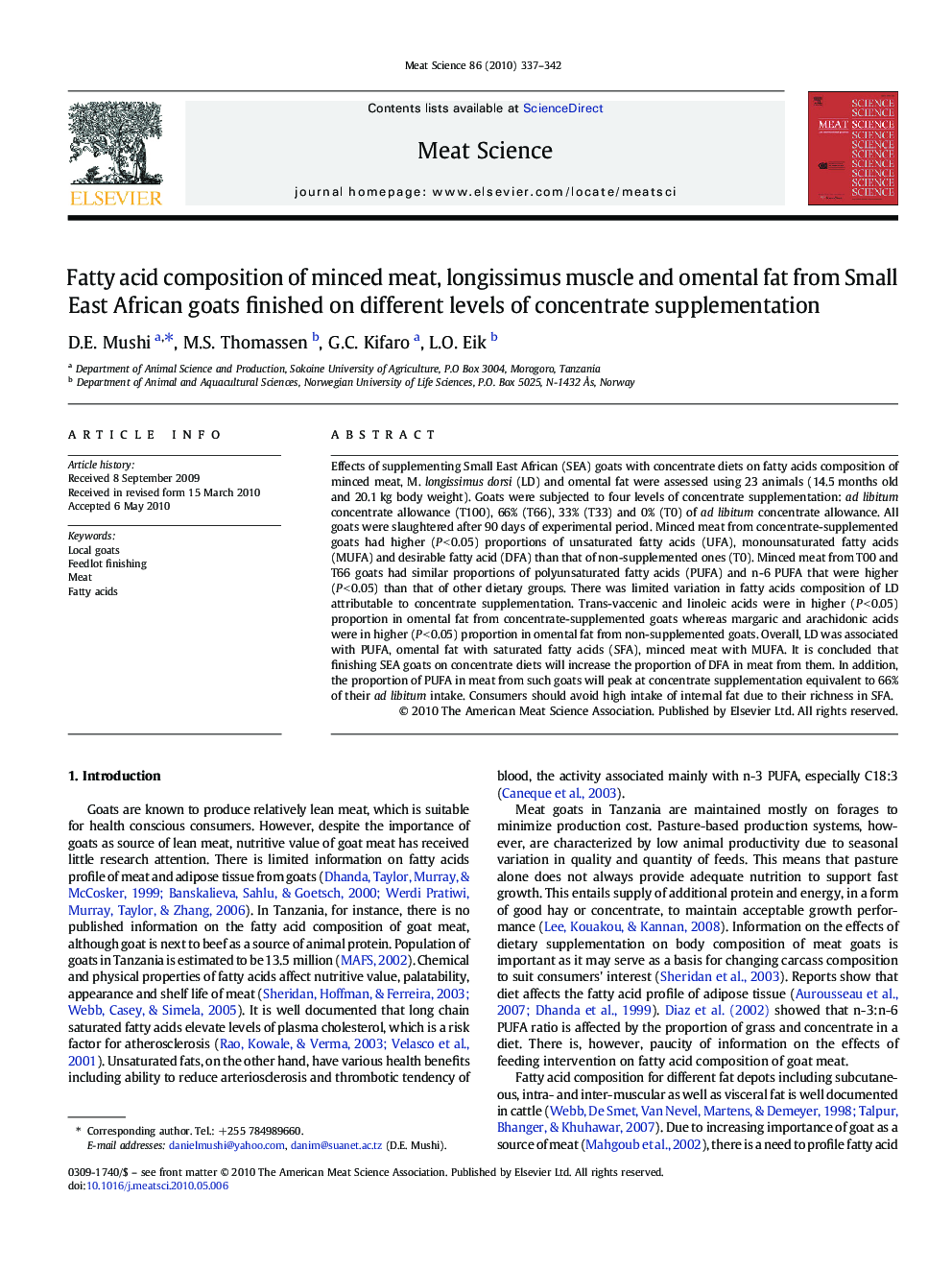| Article ID | Journal | Published Year | Pages | File Type |
|---|---|---|---|---|
| 2450284 | Meat Science | 2010 | 6 Pages |
Effects of supplementing Small East African (SEA) goats with concentrate diets on fatty acids composition of minced meat, M. longissimus dorsi (LD) and omental fat were assessed using 23 animals (14.5 months old and 20.1 kg body weight). Goats were subjected to four levels of concentrate supplementation: ad libitum concentrate allowance (T100), 66% (T66), 33% (T33) and 0% (T0) of ad libitum concentrate allowance. All goats were slaughtered after 90 days of experimental period. Minced meat from concentrate-supplemented goats had higher (P < 0.05) proportions of unsaturated fatty acids (UFA), monounsaturated fatty acids (MUFA) and desirable fatty acid (DFA) than that of non-supplemented ones (T0). Minced meat from T00 and T66 goats had similar proportions of polyunsaturated fatty acids (PUFA) and n-6 PUFA that were higher (P < 0.05) than that of other dietary groups. There was limited variation in fatty acids composition of LD attributable to concentrate supplementation. Trans-vaccenic and linoleic acids were in higher (P < 0.05) proportion in omental fat from concentrate-supplemented goats whereas margaric and arachidonic acids were in higher (P < 0.05) proportion in omental fat from non-supplemented goats. Overall, LD was associated with PUFA, omental fat with saturated fatty acids (SFA), minced meat with MUFA. It is concluded that finishing SEA goats on concentrate diets will increase the proportion of DFA in meat from them. In addition, the proportion of PUFA in meat from such goats will peak at concentrate supplementation equivalent to 66% of their ad libitum intake. Consumers should avoid high intake of internal fat due to their richness in SFA.
